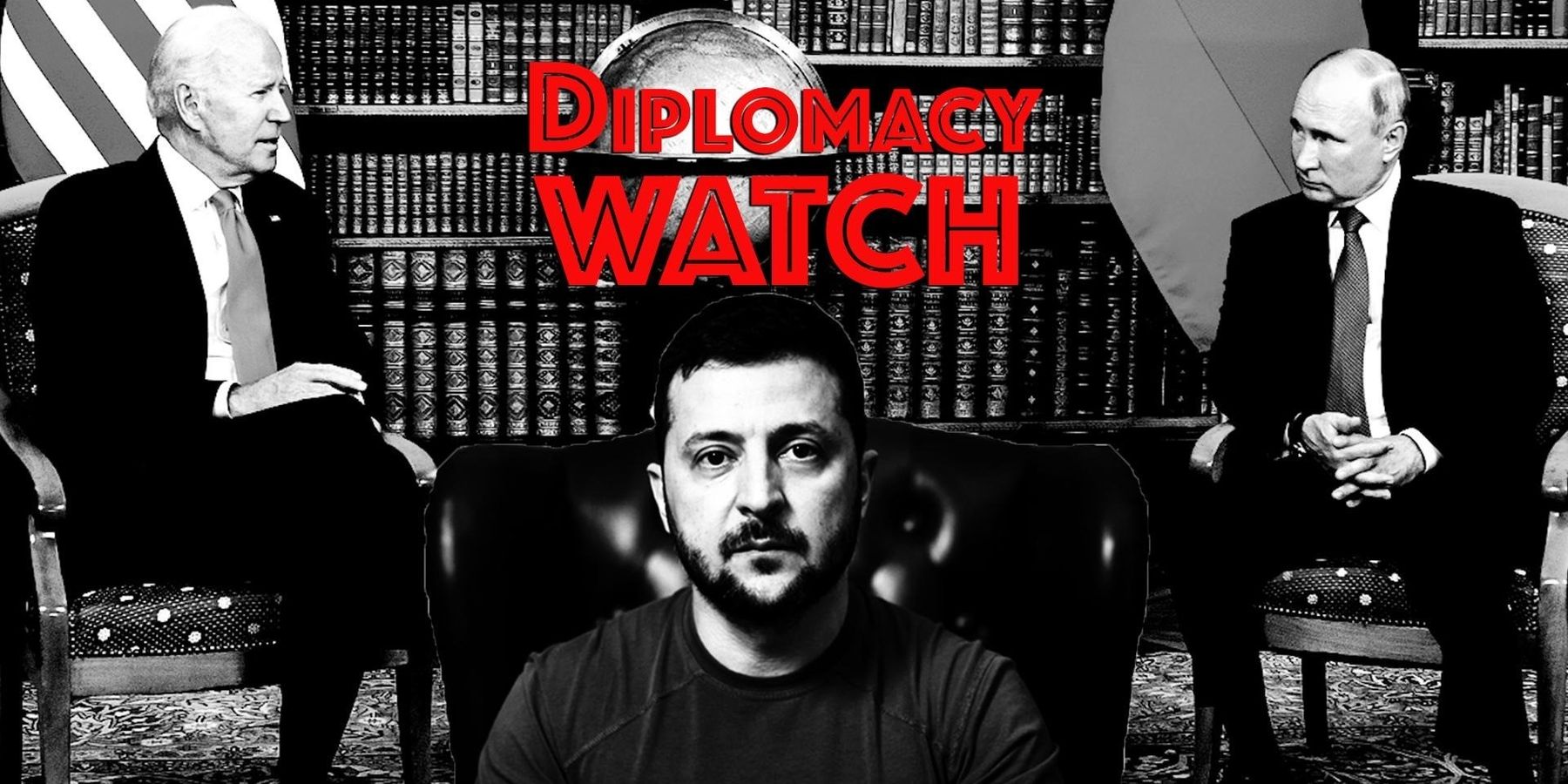In a speech to the World Economic Forum in Davos, Switzerland this week, Ukrainian President Volodymyr Zelensky called for a “just and stable” peace, but maintained that a ceasefire to freeze the conflict with Russia at current lines remained unacceptable.
“I remind you that after 2014, there were attempts to freeze the war in Donbas. There were very influential guarantors of that process,” Zelensky said. “But Putin is a predator who is not satisfied with frozen products.”
Despite a recent report from the New York Times suggesting that Russian President Vladimir Putin has been quietly signaling an openness to a ceasefire, Zelensky argued that he “embodies war.”
“We all know that he is the sole reason why various wars and conflicts persist, and why all attempts to restore peace have failed,” the Ukrainian president said. “And he will not change.”
Instead, Zelensky remains committed to his vision of a 10-point peace formula, which calls for, among other stipulations, the withdrawal of Russian troops from all Ukrainian territory and the prosecution of Russian officials for war crimes.
“[T]hose demands are considered, by analysts and even politicians backing the proposal, to be unreachable given the current balance of forces on the battlefield,” reported the New York Times on Tuesday.
Kyiv continues to try to persuade the international community to sign onto its peace plan. According to Zelensky, representatives from over 80 countries and international institutions have met in a series of meetings since last summer to discuss the Ukrainian peace formula. This week, Switzerland agreed to host the next round of talks, which Zelensky said will include world leaders for the first time.
Zelensky also said on Monday that it was important to him that representatives from China and the Global South be present at the summit. "We would very much like China to be involved in our [peace] formula, as well as in the summit," he said, according to Reuters. "But not everything depends on our wishes."
Indeed, on Wednesday Politico reported that officials from Beijing had given Ukraine the cold shoulder at Davos.
“China’s decision not to meet with Ukrainians appeared intentional and not the result of a scheduling problem,” reads the report. “One senior U.S. official said Beijing rejected Kyiv’s request for a meeting at some point during their mutual Swiss visits. Another senior U.S. official said China has refused any gatherings after Russia urged it to cease diplomatic encounters with Ukraine.”
A Ukrainian official told Politico that the characterization was not accurate and that the Ukrainian delegation had never requested a meeting with their Chinese counterparts.
In other diplomatic news related to the war in Ukraine:
— For the first time since Congress returned earlier this month, there appears to be some movement on President Joe Biden’s national security supplemental package, which includes roughly $60 billion in aid for Ukraine. Biden met with four congressional leaders — Senate Majority Leader Chuck Schumer (D-N.Y.), Senate Minority Leader Mitch McConnell (R-Ky.), Speaker of the House Mike Johnson (R-La.) and House Minority Leader Hakeem Jeffries (D-N.Y) — to discuss the supplemental at the White House on Wednesday.
Following the meeting, McConnell said he expected to hold a vote on the legislation next week, and Schumer added, “For the first time, I believe the odds are a little better than 50% that we can get something done. But certainly it's not a done deal yet.”
Following the meeting, Sen. Ron Johnson (R-Wis.) led 17 GOP Senators in calling for a meeting next week to discuss the Republican conference’s position on Ukraine aid.
The trickier situation will likely be in the House, where Johnson said that he supports aid to Kyiv but members of his caucus “need the questions answered about the strategy, about the endgame and about the accountability for the precious treasure of the American people,” before agreeing to another tranche of funding.
— Ukraine and the United Kingdom announced both a new bilateral security agreement and that London would provide Kyiv with another $3 billion in military aid.
“It’s important that Russia sees that we are not moving away, that we will be with Ukraine, not just today, not just tomorrow, but for the long term,” British Prime Minister Rishi Sunak said.
“Support for Ukraine has emerged as a central thrust of London’s foreign policy since Britain left the European Union — and it has provided a means for successive Conservative prime ministers to divert attention from internal political strife,” according to The Washington Post. “It has also provided a way for London to distinguish itself from European governments, some of whom have wavered in their military assistance to Ukraine, or, as in the cases of Hungary and Slovakia, rejected it outright.”
— During a meeting in Brussels this week, top NATO leadership is expected to make plans for the biggest military exercises in Europe since the Cold War, according to the Associated Press. In the face of Russian aggression, “the wargames are meant as a fresh show of strength from NATO and its commitment to defend all allied nations from attack,” reports the AP.
U.S. State Department News:
During a press briefing on Wednesday, State Department spokesman Matthew Miller did not receive any questions about the war in Ukraine.
















